Get ISO Certificate for Your Organization
ISO in Brief
ISO is the International Organization for Standardization. ISO has a member-ship of some 160 national standards bodies from countries large and small, industrialized, developing and in transition, in all regions of the world. ISO’s portfolio of over 18600 standards provides business, government and society with practical tools for all three dimensions of sustainable development : economic, environmental and social.
An ISO International Standard represents a global consensus on the state of the art in the subject of that standard.
ISO 50001 — What is it ?
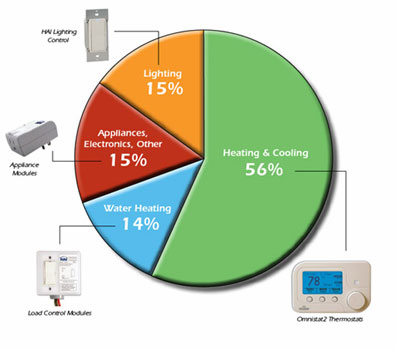
ISO 50001:2011, Energy management systems – Requirements with guidance for use, is a voluntary International Standard developed by ISO (International Organization for Standardization).
ISO 50001 gives organizations the requirements for energy management systems (EnMS).
ISO 500
01 provides benefits for organizations large and small, in both public and private sectors, in manufacturing and services, in all regions of the world.
ISO 50001 will establish a framework for industrial plants ; commercial, institutional, and governmental facilities ; and entire organizations to manage energy.
Targeting broad applicability across national economic sectors, it is estimated that the standard could influence up to 60 % of the world’s energy use.
ISO 50001 — Why is it important ?
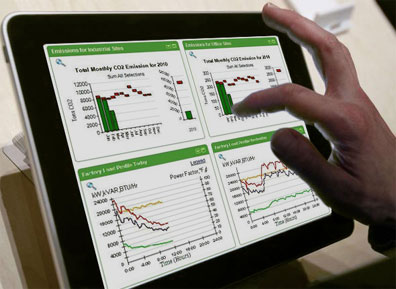
Energy is critical to organizational operations and can be a major cost to organizations, whatever their activities. An idea can be gained by considering the use of energy through the supply chain of a business, from raw materials through to recycling.
Individual organizations cannot control energy prices, government policies or the global economy, but they can improve the way they manage energy in the here and now. Improved energy performance can provide rapid benefits for an organization by maximizing the use of its energy sources and energy-related assets, thus reducing both energy cost and consumption. The organization will also make positive contributions toward reducing depletion of energy resources and mitigating worldwide effects of energy use, such as global warming.
ISO 50001 is based on the management system model that is already under- stood and implemented by organizations worldwide. It can make a positive difference for organizations of all types in the very near future, while supporting longer term efforts for improved energy technologies.
ISO 50001 — What will it do ?
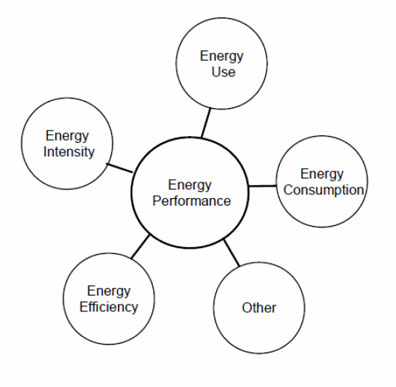
ISO 50001 will provide public and private sector organizations with management strategies to increase energy efficiency, reduce costs and improve energy performance.
The standard is intended to provide organizations with a recognized frame- work for integrating energy performance into their management practices.
The standard is intended to accomplish the following :
- Create transparency and facilitate communication on the management of energy resources
- Promote energy management best practices and reinforce good energy management behaviors
- Assist facilities in evaluating and prioritizing the implementation of new energy-efficient technologies
- Provide a framework for promoting energy efficiency throughout the supply chain
- Facilitate energy management improvements for greenhouse gas emission reduction projects
- Allow integration with other organizational management systems such as environmental, and health and safety.
ISO 50001 — How Does it work ?
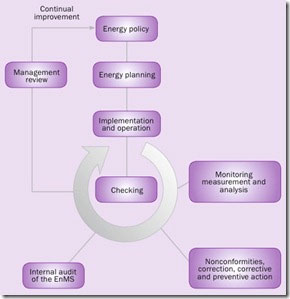
ISO 50001 follows the Plan-Do-Check-Act process for continual improvement of the energy management system.
These characteristics enable organizations to integrate energy management now with their overall efforts to improve quality, environmental management and other challenges addressed by their management systems. ISO 50001 provides a framework of requirements enabling organizations to :
ISO 50001 — Who can it benefit ?

Like all ISO management system standards, ISO 50001 has been designed for implementation by any organization, whatever its size or activities, replica watches uk
whether in public or private sectors, regardless of its geographical location.
ISO 50001 does not fix targets for improving energy performance. This is up to the user organization, or to regulatory authorities. This means than any organization, regardless of its current mastery of energy management, can implement ISO 50001 to establish a baseline and then improve on this at a replica watches
rhythm appropriate to its context and capacities. Like all ISO management system standards, ISO 50001 has been designed for implementation by any organization, whatever its size or activities,swiss replica watches whether in public or private sectors, regardless of its geographical location.
ISO 50001 — To certify or not ?
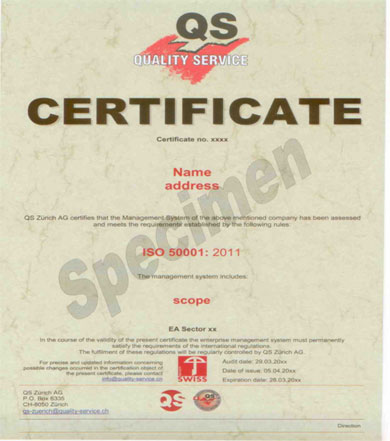
Like all ISO management system standards, ISO 50001 can be implemented solely for the internal and external benefits it provides the user organizations and the latter’s stakeholders and customers. Certification by an independent auditor of conformity of the user’s energy management system to ISO 50001 is not a requirement of the standard itself. To certify or not is a decision to be taken by the ISO 50001 user, unless imposed by regulation.
Alternatives to independent (third party) certification are to invite the organization’s customers to verify its implementation of ISO 50001 in conformity with the standard (second party verification), or to self-declare its conformity.
ISO 50001 — What’s in the standard ?
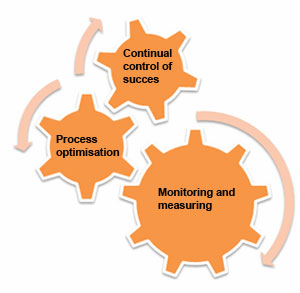
The content of ISO 50001 is structured as follows : “ The purpose of this International Standard is to enable organizations to establish the systems and processes necessary to improve energy performance, including energy efficiency, use, and consumption. Implementation of this standard is intended to lead to reductions in greenhouse gas emissions, energy cost, and other related environmental impacts, through systematic management of energy. This International Standard is applicable to all types and sizes of organizations irrespective of geographical, cultural or social conditions. Successful implementation depends on commitment from all levels and functions of the organization, and especially from top management.
This International Standard specifies requirements of an energy management system (EnMS) for an organization to develop and implement an energy policy, establish objectives, targets, and action plans, which take into ac- count legal requirements and information related to significant energy use. An EnMS enables an organization to achieve its policy commitments, take action as needed to improve its energy performance and demonstrate the conformity of the system to the requirements of this International Standard. Application of this International Standard can be tailored to fit the requirements of an organization — including the complexity of the system, degree of documentation, and resources — and applies to the activities under the control of the organization.
“ This International Standard is based on the Plan-Do-Check-Act continual improvement framework and incorporates energy management into everyday organizational practices.
This approach can be briefly described as follows:
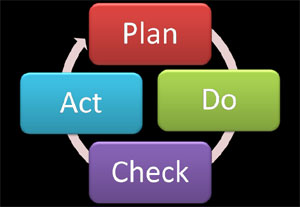
Plan : conduct the energy review and establish the baseline, energy performance indicators (EnPIs), objectives, targets and action plans necessary to deliver results in accordance with opportunities to improve energy performance and the organization’s energy policy.
Do : implement the energy management action plans.
Check :
monitor and measure processes and the key characteristics of its operations that determine energy performance against the energy policy and objectives and report the results.
Act : take actions to continually improve energy performance and the EnMS.
ENERGY MANAGEMENT SYSTEM ISO 50001 - KEY ELEMENTS
4 Energy management system requirements
-- 4.1 General requirements
-- 4.2 Management responsibility
--- 4.2.1 Top management
--- 4.2.2 Management representative
-- 4.3 Energy policy
-- 4.4 Energy planning
--- 4.4.1 General
--- 4.4.2 Legal and other requirements
--- 4.4.3 Energy review
--- 4.4.4 Energy baseline
--- 4.4.5 Energy performance indicators
--- 4.4.6 Energy objectives, energy targets and energy management action plans
-- 4.5 Implementation and operation
--- 4.5.1 General
--- 4.5.2 Competence, training and awareness
--- 4.5.3 Communication
-- 44 Energy management system requirements
-- 4.1 General requirements
-- 4.2 Management responsibility
--- 4.2.1 Top management
--- 4.2.2 Management representative
-- 4.3 Energy policy
-- 4.4 Energy planning
--- 4.4.1 General
--- 4.4.2 Legal and other requirements
--- 4.4.3 Energy review
--- 4.4.4 Energy baseline
--- 4.4.5 Energy performance indicators
--- 4.4.6 Energy objectives, energy targets and energy management action plans
-- 4.5 Implementation and operation
--- 4.5.1 General
--- 4.5.2 Competence, training and awareness
--- 4.5.3 Communication
--- 4.5.4 Documentation
--- 4.5.5 Operational control
--- 4.5.6 Design
--- 4.5.7 Procurement of energy services, products, equipment and energy
-- 4.6 Checking
--- 4.6.1 Monitoring, measurement and analysis
--- 4.6.2 Evaluation of legal requirements and other requirements
--- 4.6.3 Internal audit of the EnMS
--- 4.6.4 Nonconformities, correction, corrective, and preventive action
--- 4.6.5 Control of records
-- 4.7 Management review
--- 4.7.1 General
--- 4.7.2 Input to management review
--- 4.7.3 Output from management review
WHAT SHOULD YOU KNOW AT LEAST
Know the Energy Policy of the company.
Know the Energy aspects of your plant and process, and those which are significant
Know your objectives and targets for continual improvements
Know and have access to the legal requirements and other Energy regulations that apply to your plant and process
Know your job and how to access the most current Energy procedures and work instructions
Know the system to introduce or change of documents
Know the system of communication for actual and potential Energy issues
Know the measurement and monitoring system
Know emergency preparedness and response procedures
